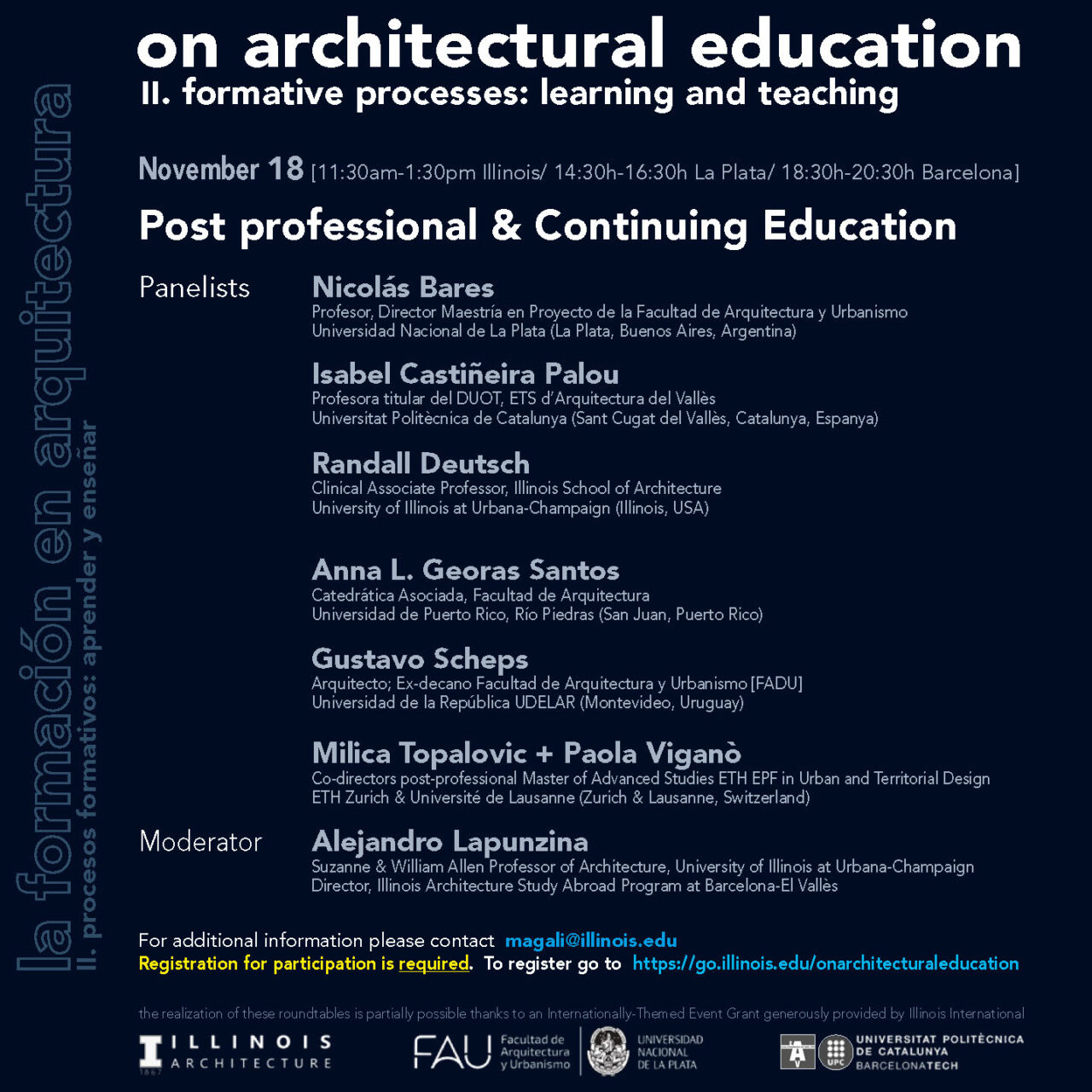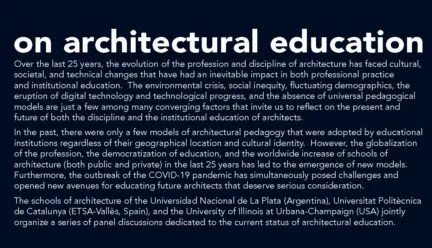
On Architectural Education: Learning to Learn
On Architectural Education
Over the last 25 years, the evolution of the profession and discipline of architecture has faced cultural, societal, and technical changes that have had an inevitable impact in both professional practice and institutional education. The environmental crisis, social inequity, fluctuating demographics, the eruption of digital technology and technological progress, and the absence of universal pedagogical models are just a few among many converging factors that invite us to reflect on the present and future of both the discipline and the institutional education of architects.
In the past, there were only a few models of architectural pedagogy that were adopted by educational institutions regardless of their geographical location and cultural identity. However, the globalization of the profession, the democratization of education, and the worldwide increase of schools of architecture (both public and private) in the last 25 years has led to the emergence of new models. Furthermore, the outbreak of the COVID-19 pandemic has simultaneously posed challenges and opened new avenues for educating future architects that deserve serious consideration.
The schools of architecture of the Universidad Nacional de La Plata (Argentina), Universitat Politècnica de Catalunya (ETSA-Vallès, Spain), and the University of Illinois at Urbana-Champaign (USA) jointly organize a series of panel discussions dedicated to the current status of architectural education.
Part II: Formative Processes: Learning and Teaching
The first series of five roundtables held in April and May of 2021 focused on the design studio as the backbone of architectural education. This second series of roundtables will address the formative processes that are involved in architectural education with an emphasis on the dual/reciprocal process of learning and teaching at different stages of the academic and professional education of architects.
Offered online in a hybrid, bilingual format (English/Spanish), the series is free and open to interested educators, students, researchers, and professionals worldwide.
Click here to register.
